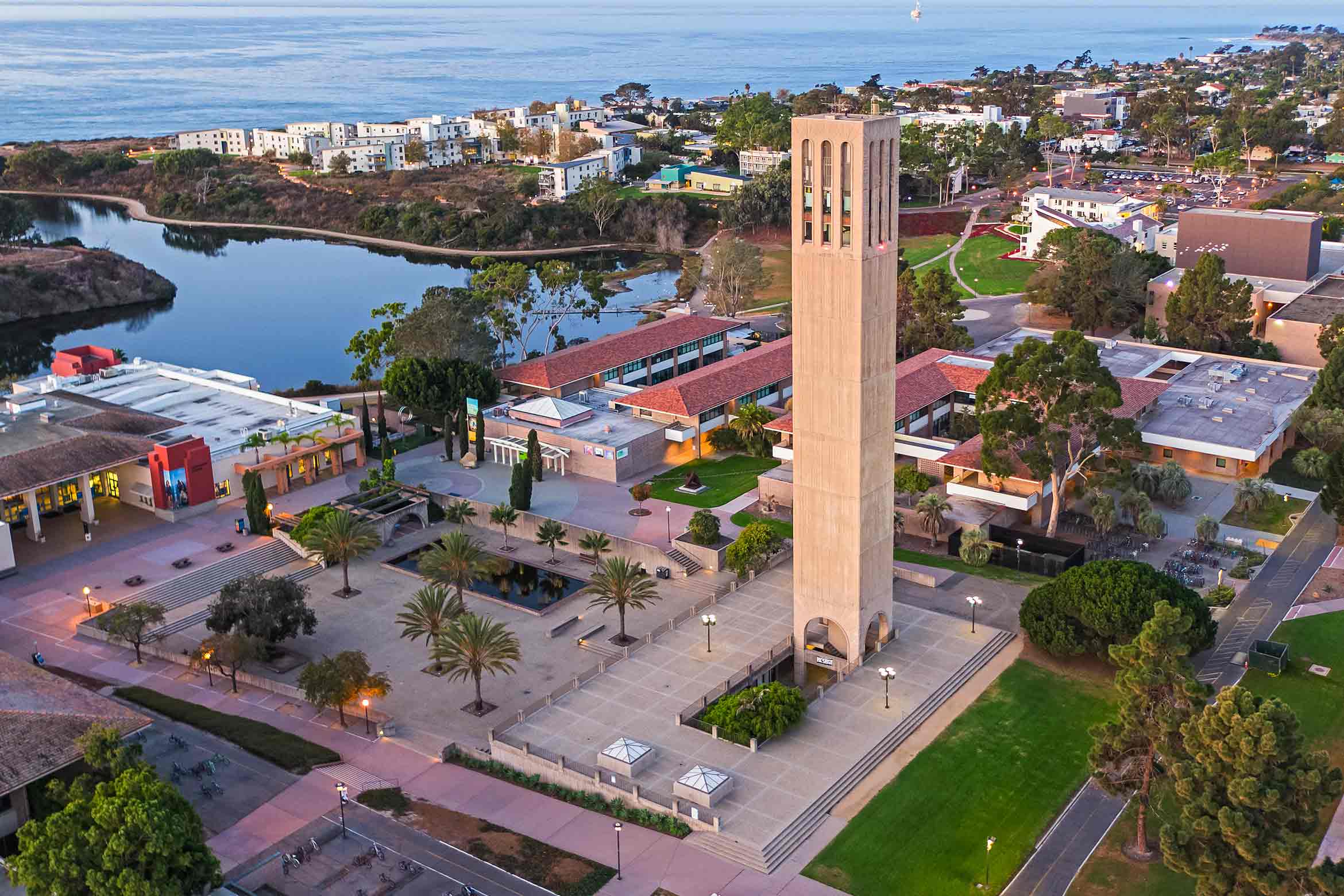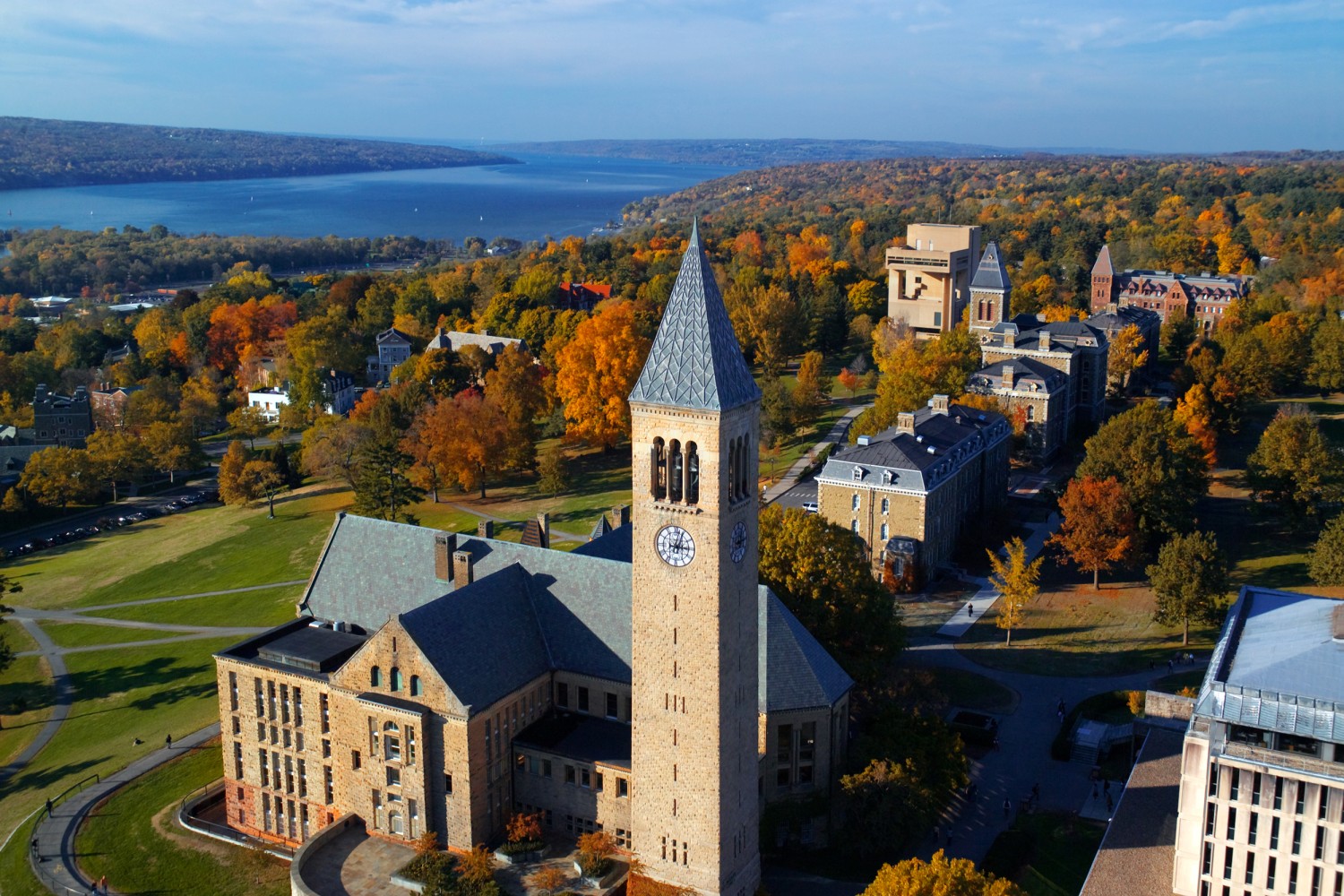Spotlight Q&A from UCSB
Why Xiaochang chose UCSB's Electrical Engineering program
I was informed that UCSB not only had an excellent Physics Department but its engineering program was also outstanding. In addition, I prefer California's weather especially since the campus is next to the beach and this made me look forward to studying at UCSB. I was initially admitted by UCSB in the major of CCS (College of Creative Studies) Physics. I am crazy about physics theory, especially on the aspect of energy. However, when I started my studies at UCSB, I realized that I was not solely interested in theory but also in application. I want to invent something that can contribute to making our lives easier and since this requires more of an understanding of engineering, I transferred into electrical engineering. In EE not only do you study the theories, but you also realize the formulas into real application.
Students and parents often ask, what can you do with an electrical engineering degree?
The electrical engineering major has a wide range of fields that relate to our daily lives. For example, if you study in the area of computer architecture you can figure out each electronic component inside your computer and sometimes do an easy fix when you’ve run into trouble on your PC. On the other hand, control systems can take you into working on automated drones, vehicle design, and robots. EE is also cutting edge in the fields of semiconductor physics and VLSI design that save energy and space and speed up processing in today’s technology like mobile devices. I will never regret selecting the electrical engineering major because it has taken me into the vast world of the law of the universe and has made me become a well-rounded man.
Student Life at UCSB?
There are a lot of great social organizations at UCSB. Don’t think you will be overwhelmed and then have to give up your social activities. Mostly, learn how to manage time and increase your efficiency since they are two very valuable skills for surviving college. Initially, I was assigned to Manzanita Village on campus which consists of several residential halls, like Gaviota, Cuyama, etc. I found the village quiet and beautiful since it is next to beaches and I highly recommend it to the new students. Eventually, I moved into an off-campus apartment to live with my friends. There is also a lot of housing available very close to campus in Isla Vista (IV) and it is a convenient to commute by either bike or bus – for instance, I can usually bike to school in 5 minutes.
Future Plans?
After graduation, I plan to find a job and work for a year or two and then travel throughout Europe. After working for a bit, I plan to apply to graduate school. Graduate school narrows down the undergraduate general education by focusing on a specific field. So far, I have not come up with an idea for a particular field in electrical engineering and industry work should help me figure out what exactly I want to study and do in the future. Additionally, work experience will be another highlight on my personal profile when applying to a competitive graduate school.

Overlook of UCSB Campus
Spotlight Q&A from Cornell
What does being a Cornellian mean to you?
Being a Cornellian means a lot to me as it represents being a part of a prestigious institution that values both academic excellence and practical applications. The Systems Engineering program also has a diverse and inclusive community of students, faculty, and various courses of choices. Especially, while taking systems core courses about systems analysis and management, I’ve taken many courses associated with data and machine learning fields. I hope, in future, both technical and managemental fields can facilitate my career path in the future.
Who inspired or influenced you during your time at Cornell?
During my time at Cornell, I was inspired and influenced by many professors and industry professionals who taught me valuable skills and knowledge in my field of study. Specifically, I have taken the series of optimization and machine learning courses by Professor Fengqi You, which enhanced my CS 5780 ML algorithm course taken before with more hands-on applications in the real data in the industries. In addition, Professor Christopher Batten, who taught ECE5745, Complex ASIC Design, had a significant impact on me by challenging me to think critically and creatively in my approach to chip design projects. Also, both professors invited the industrial professionals from world well-known companies to share their experiences provide some job opportunities with us.
What will you miss the most about Cornell?
It is my second time re-visiting the U.S. for studying after I had two and half years working Kirin Chip Design Department at Huawei. I was missing the close-knit community, the beautiful campus and free and open-minded study environment. Here Cornell did not let me down: the same supportive network of friends and faculty made my time at Cornell enjoyable and memorable, and the campus's natural beauty provided a serene and calming environment for learning and personal growth, while Systems students have chances of all kinds of fields of studies and research.
What surprised you most about your Cornell experience?
What surprised me the most about my Cornell experience was the breadth and depth of opportunities available to me as a student. Whether it was research, internships, or extracurricular activities, there was always something new and exciting to explore, and I was continually challenged to expand my horizon on fields of study from ECE to Systems and push me from the view of bottom technical design to the higher level of systematic thinking of a product/project definition or development.
What accomplishment as a Cornell student makes you most proud?
The accomplishment as a Cornell student that makes me most proud is my successful completion of the M.Eng. program in System Engineering, specializing in optimization and machine learning branch courses. This program challenged me to develop and apply advanced analytical and computational skills to real-world problems, and I feel well-equipped to make meaningful contributions in my future career. Even though, “optimization and machine learning branch” is not currently in our official branches of systems engineering, at the end, I sincerely suggest this could be considered as a new branch of study in systems engineering. While this branch could attract more students world-wide who have the same interests and, this branch of major can also bolster students’ skills in today’s data-driven society and grows and adapts to the world of big data and machine learning.
What moments, big or small, made your Big Red experience special?
There were many moments, big and small, that made my Big Red experience special. Some of the most memorable include participating in hackathons, attending guest lectures by industry leaders, and working on team projects with classmates from diverse backgrounds and disciplines.
What are your plans “Post Cornell”?
Post Cornell, my plans are to leverage my education and professional experience to pursue a challenging and rewarding career in the semiconductor industry. I have been offered job opportunities with ByteDance (Tik-tok’s Mother Company), TSMC, Horizon Robotics, and Cambricon, and I am excited to explore these options and find the best fit for my skills and interests. One time in future, I could do my best to also share my industrial experience back to the campus and bring job opportunities to the Cornellians!

Overlook of Cornell Campus